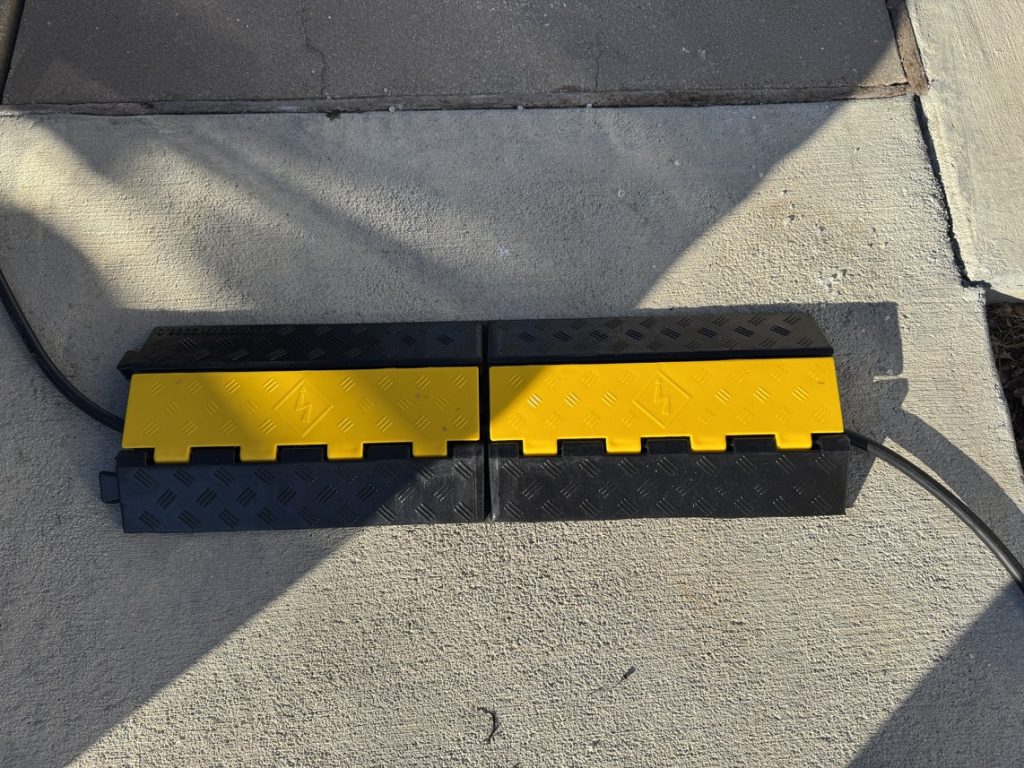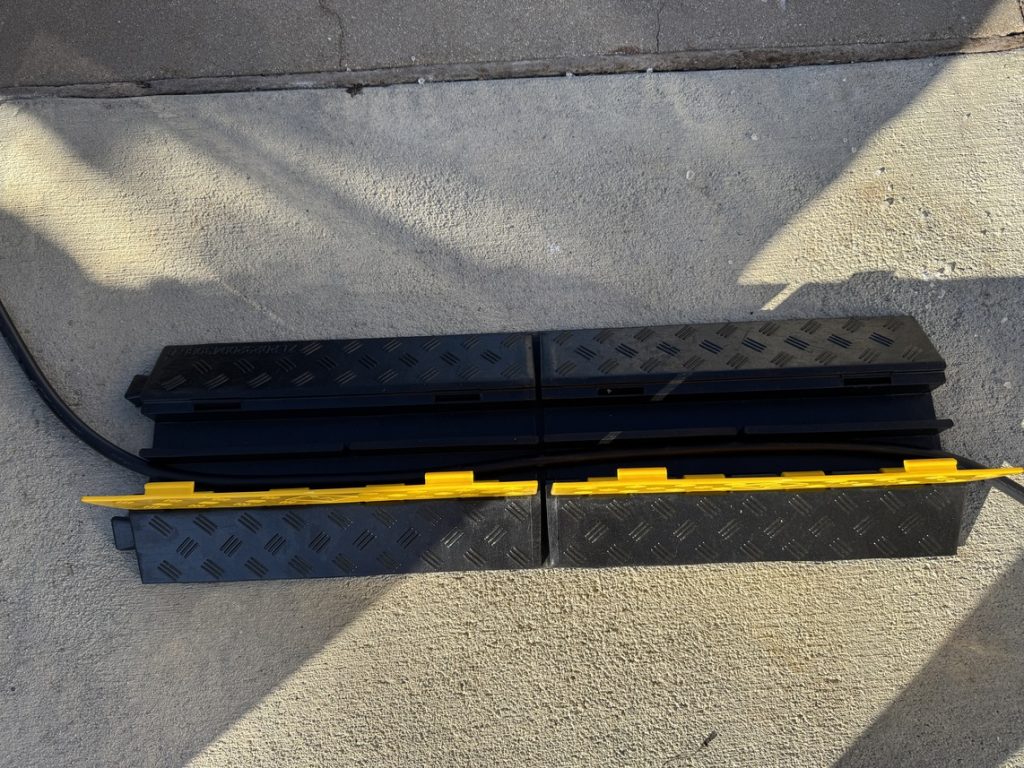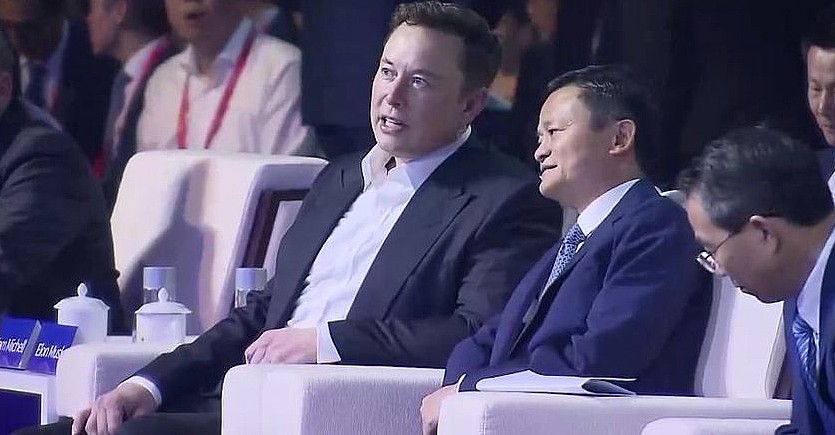
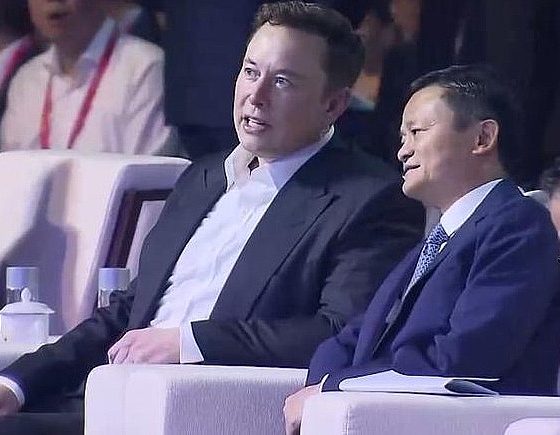
News
Elon Musk and Jack Ma discuss AI’s risks, Mars, and how humans can secure the future
Tesla and SpaceX CEO Elon Musk and Alibaba founder and Chairman Jack Ma kicked off the 2019 World Artificial Intelligence Conference in Shanghai, China, with an informal debate about AI and its implications to humanity. Throughout their conversation, Musk and Ma touched on several topics, from jobs, the need for educational reform, moving to Mars, and how humans’ way of life can improve in the future.
Opposing Views
The two billionaires have vastly differing points of view concerning artificial intelligence. While Musk is cautious about AI considering the dangers it may pose to humanity, Ma is far more optimistic. “I don’t think AI is a threat,” Ma said, responding to the Tesla CEO’s introductory points. Explaining further, the Alibaba founder noted that people are “street smart,” and thus, humanity will be fine even when AI evolves. Musk, for his part, doubled down on his point, arguing that AI’s rate of improvement is notable, and there will come a time when computers will outpace humans’ natural ability to understand it.
Making humans multi-planetary
Musk noted that humans have an opportunity today because this is the first time in history that it’s “possible to extend life beyond Earth.” He added that the window for this could either be open for a long or short time. Thus, it is in humanity’s best interest to secure its multi-planetary opportunities as quickly as possible.
Ma, for his part, argued that he has no interest in multi-planetary initiatives. “I’m not a fan of going to Mars,” he noted. Instead, Ma stated that it’s more pertinent for humans to try and preserve Earth. The Alibaba chairman nevertheless stated that the world needs innovators like Elon Musk, in as much as it needs people who are willing to do what needs to be done to save the planet. “We need heroes like you (who want to go to Mars), but we need heroes like us (who will fix Earth),” Ma said.
Musk explained that preserving Earth is a notable part of Tesla’s mission, from transitioning the transportation sector towards sustainability to fostering energy independence through solar power and batteries. Responding to Ma’s statements about using resources to focus on solving Earth’s problems, Musk noted that it will only take a fraction of the world’s GDP to make humans multi-planetary, comparable or even less than what people spend on something like makeup annually. “Spending resources on making life multi-planetary would be enough with just 1% of the earth’s GDP,” Musk noted.
AI’s threat to jobs
“Why do we need that many jobs anyway?” Ma said, explaining that humans have been fearing that tech will take jobs away for over a hundred years, and yet, jobs have increased. Ma believes that with AI’s help, humans can eventually reach a point where the average workweek is only 3 days per week, and the average workday is only 4 hours a day. This, according to Ma, opens the opportunity for humans to enjoy life more, and live even longer. “We need to be ready to enter the era where everyone will get to live 120 years,” he said.
Musk, for his part, stated that the advent of AI will likely make most jobs pointless. Considering AI’s evolution, Musk noted that the time will come when computers could eventually make their own software. With this in mind, it would be best for people to embrace areas such as engineering and fields of study that deal with human relations, as these will still be pertinent even in the artificial intelligence age. The Tesla CEO added that this is the reason behind Neuralink and its brain-machine interface, as it will prevent humans from being left behind.
The need for education reform
The Alibaba founder admitted that he is worried about the current educational system, which is still largely designed for the industrial period. Ma argues that today, there is a need to foster more creative and constructive education, which would allow humans to live a happier life. “I want to spend more time training kids on painting, singing, dancing, these creative things that make people live like humans,” he said. Ma added that people have heart, and that is where wisdom comes from. With this in mind, it is best for education to focus on training this aspect of the human being.
The Tesla CEO agreed that creative education is needed, particularly as today’s school system is “low bandwidth and extremely slow.” Musk noted that solutions such as Neuralink’s neural lace could be a difference-maker in this sense, as it would allow people to upload skills and learn them quickly, in a manner that is not too far from the concepts depicted in the sci-fi franchise The Matrix.
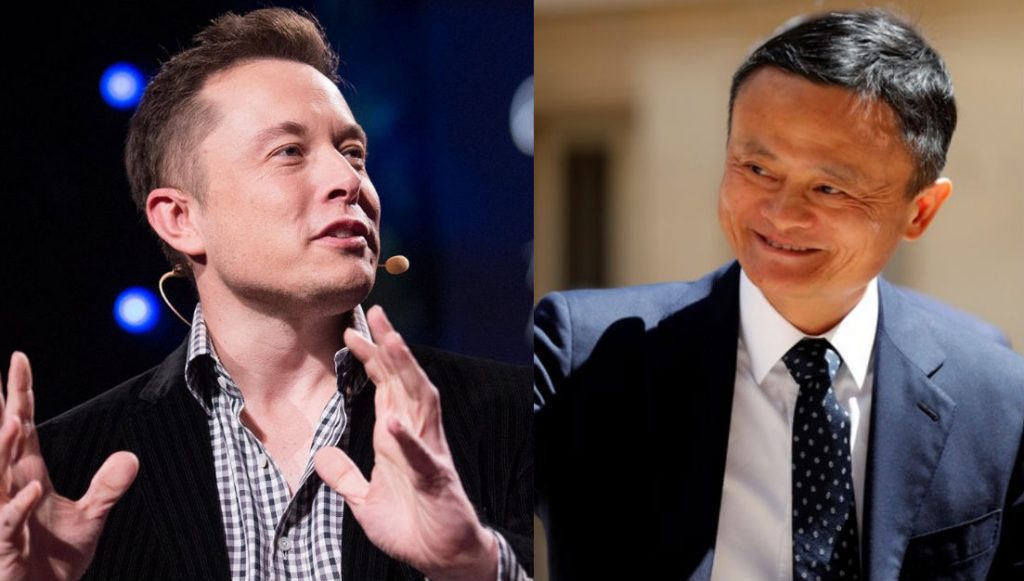
The dangers of AI
While the two disruptors agreed that there is a need for educational reform, Musk and Ma disagreed most about the potential risks of AI. Ma argued that compared to humans, computers are just a toy, adding that the best resource in the world is the human brain. “It’s impossible that humans could be controlled by machines. They’re machines that are invented by humans,” Ma said.
Musk noted that he very much disagrees with Ma’s stance. Arguing his point, the Tesla CEO stated that humans are capable of creating things that are superior to people. Humans are not the last step in evolution, Musk said, and people must be wary of thinking that they are smarter than they really are. “The most important mistake smart people make is that they think they’re smart. Computers are already smarter than people. We just keep moving the goalposts,” he stated.
Responding to Musk’s argument, Ma noted that the metrics humans use to benchmark themselves against AI (such as world champions in Chess playing against artificial intelligence) do not make sense, as games like Go are designed for human minds. “Why should humans play against computers? It’s stupid to compete with computers,” Ma quipped, adding that while computers can be clever, humans are smarter and wiser.
The future of humanity
Musk believes that one of the world’s greatest threats lie in its declining birthrate. “The world’s biggest issue in 20 years is population collapse,” he said, adding that this could be a big issue considering that humans generally have a “20-year boot sequence.” Ma agreed, stating that even China’s population, which currently stands at 1.4 billion people, sounds a lot today, but if one factors in the country’s declining birthrate, the country will see a completely different landscape in 20 years.
Musk added that more humans are definitely needed, especially with the start of multi-planetary initiatives. “Mars needs people,” he lightly said.
Ma ultimately believes that pursuing AI is wise to make people’s lives better. The Alibaba founded added that artificial intelligence can always do a better job when logic is involved, but when logic is not involved, humans will always be better. To thrive in the future, Ma stated that humans need not just IQ, but emotional intelligence, and (love) intelligence as well. Musk nodded, stating “I agree with him. Love is the answer.”
Watch Elon Musk and Jack Ma’s informal AI debate in the video below.

News
I figured out how to charge my Tesla at my rented townhouse – Here’s how
I hope that this article is able to help the prospective EV buyer or the current Tesla owner who is living in a rental and does not have a straightforward solution to home charging. My situation will be presented in this article, and I will tell you why I went with the solution I went with, and alternatives, because there is more than one way to do this.
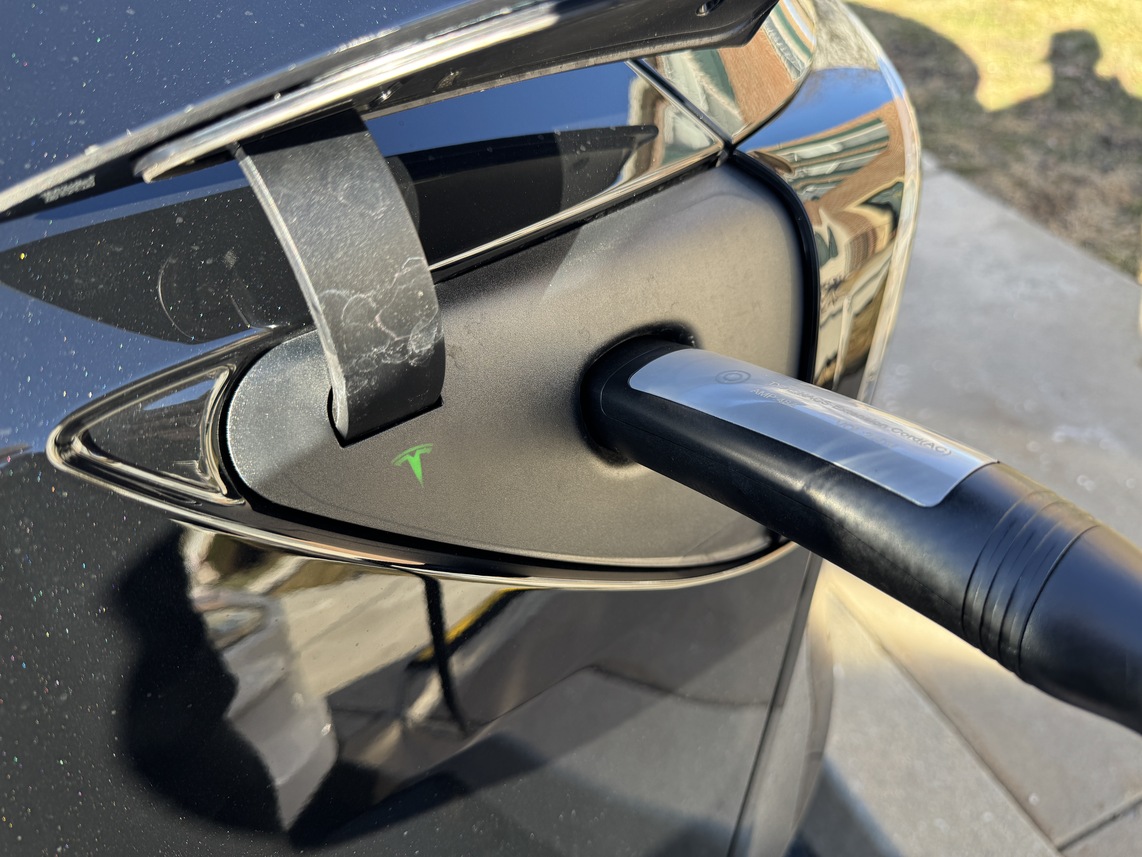
When I bought my Tesla Model Y Premium All-Wheel-Drive last year, I knew I would have to try to figure out a way not become totally reliant on Superchargers. After about six months of ownership, it came time to resolve that problem once and for good, and being a tenant in a rented townhouse community definitely added to my challenge.
Before I even bought my Tesla, I emailed my leasing office to see if the community had any plans to bring EV charging to the neighborhood. I had made myself available to them as I am familiar with a lot of the solutions out there and how much of an advantage this could be for the community, and attracting new tenants. After months of trying, I bought my Tesla in August anyway, and figured I’d be able to find an answer — whether positive or negative — and go from there.
I hope that this article is able to help the prospective EV buyer or the current Tesla owner who is living in a rental and does not have a straightforward solution to home charging. My situation will be presented in this article, and I will tell you why I went with the solution I went with, and alternatives, because there is more than one way to do this.
My Challenge with Home Charging
In a rental community, apartment complex, or even townhouse row, parking spots are a little complicated. I have assigned parking at my house, and unfortunately, my parking spot is not right in front of my front door. Instead, it is staggered, so my car is parked in front of my neighbor’s front door.
Initially, I had spoken to my neighbor whose spot is right in front of my front door and had gotten permission to park in their spot during the day while it is vacant. However, I was not going to be able to upgrade my outlet from a 110v-120v to the typical and suggested 220v-240v alternative.
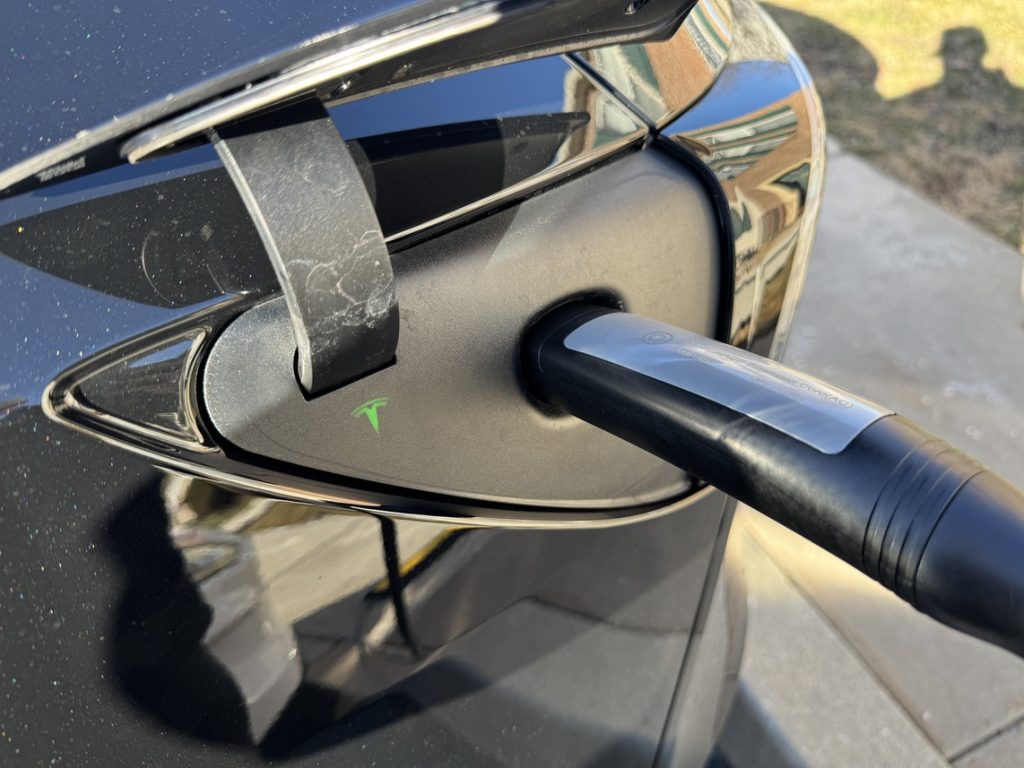
I knew that this would mean I would need to be in my permanent spot because charging sufficiently, especially in preparation for trips or errands, would require overnight charging.
The Tesla Mobile Connector is 20 feet long, which is sufficient for most applications. Mine, however, required about 30 feet, maybe even a little more, to charge.
My Options
I had a few options: Use the Mobile Connector and park in my neighbor’s spot and charge when I could, buy an 8 or 10-gauge extension cord that could handle moving power from the Mobile Connector to my car, or buy an NACS to NACS extension cord.
I didn’t really want to do the first option, considering I knew that spot would only be available when my neighbor was not there. It didn’t seem like a viable option, and I figured it would be better to figure out something from my personal, permanent parking spot anyway.
The 10-gauge extension cord option was what I first considered: it was less expensive than buying an NACS extension, it was more readily available, and it was the first thing my friends who are electricians recommended.
However, running this option would have put the Mobile Connector in the grass or on the ground, and I was not interested in doing that. Running the risk of having that $300 connector that came with the car in the grass and exposing it to dew, dogs, and various other things just did not seem like the best idea.
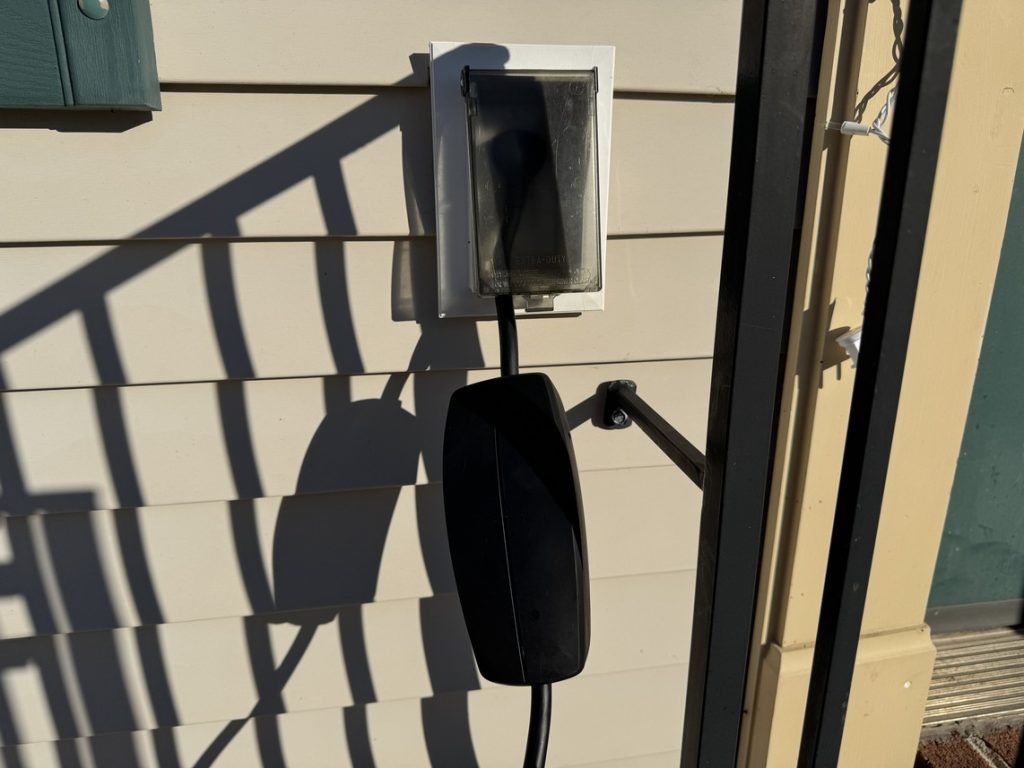
I looked around for some NACS to NACS connectors, and there are a lot of options. Given that this was something that was going to plug into a $50,000 car, I chose to spend the additional money on one that was not from Amazon, and I went with this one from A2Z, which was recommended by other owners, and their reputation seemed more than positive. I was leaning toward this option anyway because it would keep the Mobile Connector off the ground, and it gave me an additional 16 feet of length to work with.
This was the solution.
Putting It Into Action
It was a relatively simple process: Plug the Mobile Connector into my house, plug the NACS to NACS extension into the Mobile Connector, plug the NACS extension into the car. It all worked immediately, but there are some things you should know if you are also planning to do this.
The first is that you should be very aware that these cables are going to be a target of thieves. I don’t have too much of an issue with this in my area, but if you’re in a place where copper wiring is heavily sought after, be sure to keep these in a place where they won’t be stolen. I put mine away when they’re not charging, and at night, they’re visible from my Ring camera, so I’m not overly concerned. Definitely be aware of it, though.
Additionally, if you’re going to run it across the sidewalk like I am, you’re going to want to pick up some sort of cable cover from a local hardware store. I picked up this one from Amazon because it was a little more heavy-duty, and it was big enough to cover the thicker gauge of the NACS to NACS extension:
I’ve considered picking up a second one for the visible cable, but I am undecided.
So far, I’ve been able to add some range to my car three times using this strategy, and while it is very slow, it is definitely worth it. It’s better than it sitting there stagnant.
Speed of Charging
Tesla says the Mobile Connector will provide you with between 3 and 5 miles of range per hour when plugged into a typical wall outlet. That is about what I’ve gotten with it. From 30 percent to 80 percent, be aware that it will take well over 24 hours to charge your car.
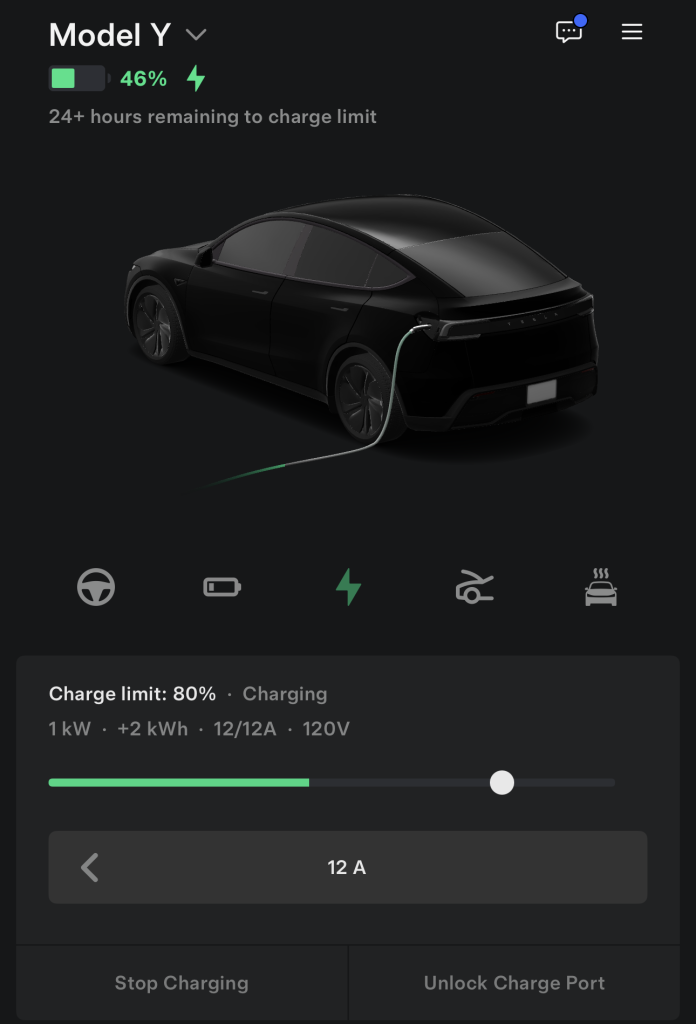
I plan to cover some additional details on this as time goes on, including any troubleshooting I might have to do, how much my electric bill goes up, and whether or not I run into any issues with my neighbors or my leasing office.
If you’re looking for some help on an at-home charging solution or have any questions about my setup, please email me at joey@teslarati.com.
🚨 I FINALLY figured out a way to charge my Tesla at home as a renter — Using Superchargers exclusively was inconvenient, tough on the battery, and expensive
Here’s how I did it: https://t.co/TZokpc6Fh3 pic.twitter.com/UtRYKLvB2Y
— TESLARATI (@Teslarati) March 2, 2026
Elon Musk
Starlink V2 to bring satellite-to-phone service to Deutsche Telekom in Europe
Starlink stated that the system is designed to deliver 5G speeds directly to compatible smartphones in remote areas.
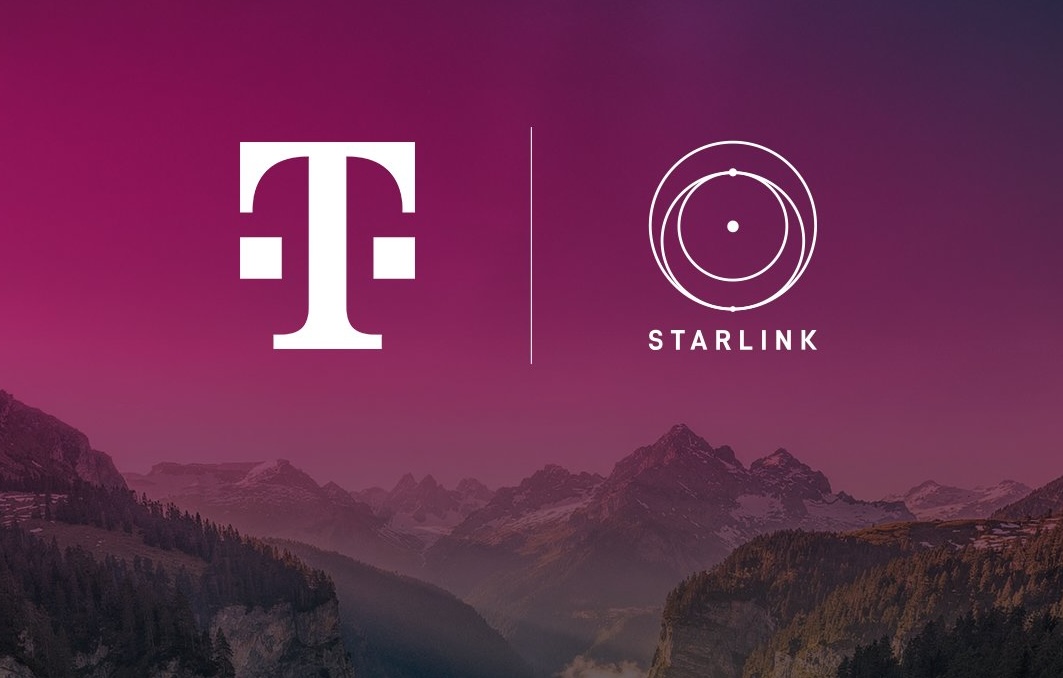
Starlink is partnering with Deutsche Telekom to roll out satellite-to-mobile connectivity across Europe, extending coverage to more than 140 million subscribers across 10 countries.
The service, planned for launch in 2028 in several Telekom markets, including Germany, will use Starlink’s next-generation V2 satellites and Mobile Satellite Service (MSS) spectrum to enable direct-to-device connectivity.
In a post on X, the official Starlink account stated that the agreement will be the first in Europe to deploy its V2 next-generation satellite-to-mobile technology using new MSS spectrum. The company added that the system is designed to deliver 5G speeds directly to compatible smartphones in remote areas.
Abdu Mudesir, Board Member for Product and Technology at Deutsche Telekom, shared his excitement for the partnership in a press release. “We provide our customers with the best mobile network. And we continue to invest heavily in expanding our infrastructure. At the same time, there are regions where expansion is especially complex due to topographical conditions or official constraints,” he said.
“We want to ensure reliable connectivity for our customers in those areas as well. That is why we are strategically complementing our network with satellite-to-mobile connectivity. For us, it is clear: connectivity creates security and trust. And we deliver. Everywhere.”
Under the partnership, compatible smartphones will automatically switch to Starlink’s satellite network when terrestrial coverage is unavailable, enabling access to data, voice, video, and messaging services.
Telekom reports 5G geographic coverage approaching 90% in Germany, with LTE exceeding 92% and voice coverage reaching up to 99%. Starlink’s satellite layer is intended to extend connectivity beyond those terrestrial limits, particularly in topographically challenging or infrastructure-constrained areas.
Stephanie Bednarek, VP of Starlink Sales, also shared her thoughts on the partnership. “We’re so pleased to bring reliable satellite-to-mobile connectivity to millions of people across 10 countries in partnership with Deutsche Telekom. This agreement will be the first-of-its-kind in Europe to launch Starlink’s V2 next-generation technology that will expand on data, voice and messaging by providing broadband directly to mobile phones,” she said.
Starlink’s V2 constellation is designed to expand bandwidth and capacity compared to its predecessor. If implemented as outlined, the 2028 launch would mark one of the first large-scale European deployments of integrated satellite-to-phone connectivity by a major telecom operator.
News
Tesla back on top as Norway’s EV market surges to 98% share in February
Tesla became Norway’s top-selling brand with 1,210 registrations, representing a 16.6% share.
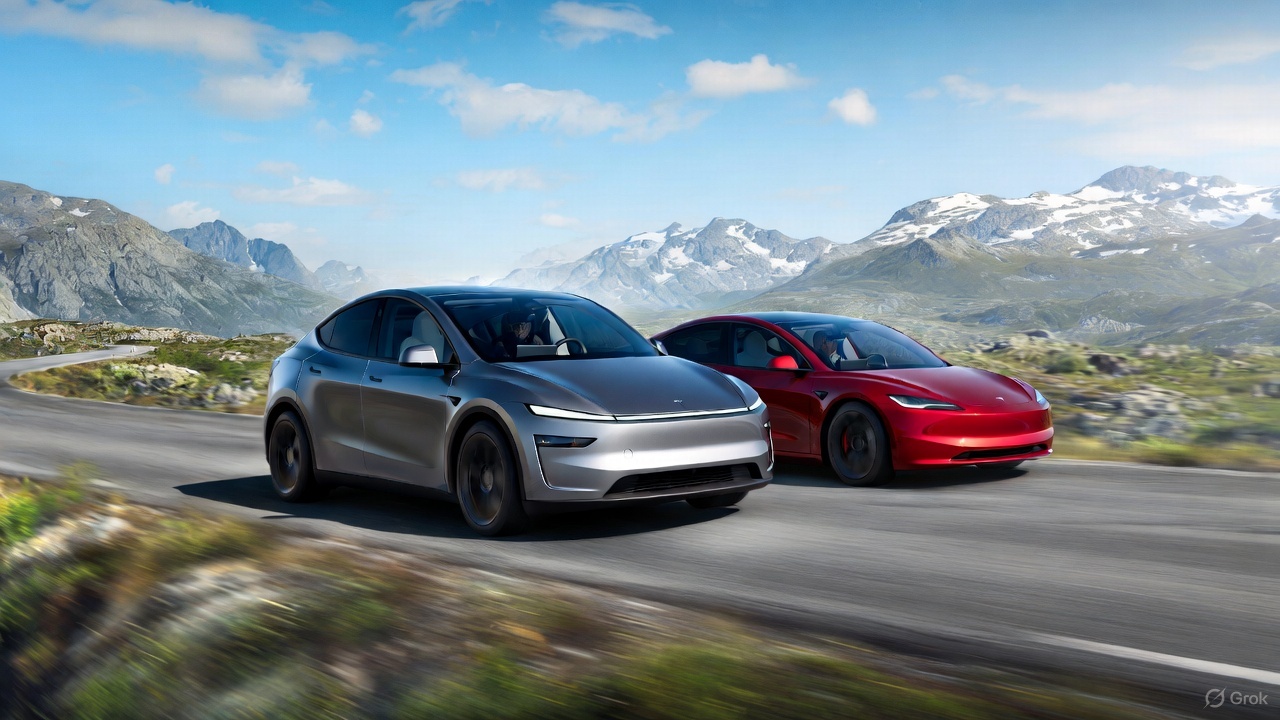
Tesla reclaimed the top spot in Norway’s auto market in February as electric vehicles captured more than 98% of all new car registrations.
The rebound follows a sharp January slump triggered by VAT rule changes, which prompted numerous car buyers to advance their purchases into late 2025.
As per data from the Norwegian Road Traffic Information Council (OFV), 7,127 new electric vehicles were registered in February, representing a 98.01% market share. Fossil-fuel vehicles and hybrids accounted for just 2% of total new registrations.
Total new car registrations reached 7,272 units in February, hinting at a rapid recovery after January sales fell nearly 75% year-over-year following VAT adjustments.
OFV Director Geir Inge Stokke noted that similar patterns were observed after previous VAT changes in 2022, with demand temporarily weakening before normalizing, as noted in an Allt Om Elbil report.
“We are now seeing signs that the market is returning to a more normal level of activity, which we also experienced after the VAT change in 2022. At that time, changes in demand led to a weak start to 2023. We have seen the same pattern this year,” he said.
Amidst this trend, the Tesla Model Y made a strong comeback in the domestic market. After an unusually weak January that saw the Tesla Model Y drop to seventh place, the model returned to the top of Norway’s sales chart in February.
The Model Y recorded 1,073 registrations, giving it a 14.8% market share for the month. Tesla also became Norway’s top-selling brand with 1,210 registrations, representing a 16.6% share. Toyota followed with 941 registrations, while Volkswagen, Volvo, and Skoda rounded out the top five brands.
The February data suggests that Tesla’s January dip was tied more to timing effects around VAT adjustments than to structural demand shifts. It would then be interesting to see how the rest of the year unfolds for Tesla, particularly as the company pushes for the release of its Full Self-Driving (Supervised) system to Europe this year.
